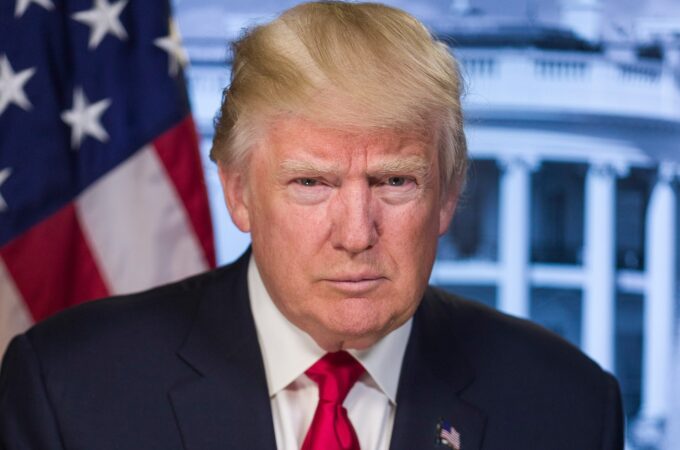
Manifesto of the crypto/ICO-community
By Slava Solodkiy, Managing Partner at Life.SREDA
Stop blaming blockchain/crypto/ICO community – better join&help us!
Bubble is not bad. It’s good. Very good. A bubble is an indication that a new idea has appeared and infused itself into many minds. This is the society’s feedback to the fact that somewhere there is a great pain.
Just try to control a one-three-five year old child as much as you control twenty-thirty-forty year olds and he will grow up to be imbecile. A predictable, risk-free imbecile grown up under the full control.
In a longer term after each bubble companies like Google, Amazon, PayPal and Netflix that were changing the landscape of the economy survived. And, most importantly, they brought a lot more benefit to customers than old players.
Some have likened the Bitcoin\Ethereum\ICO craze to Tulip Mania, believing that the bubble is getting ready to burst. But what was Tulip Mania? Today the tulip continues as a mainstay of the country’s economic life, but it plays a much more important role as the cornerstone on which Holland’s leadership as the largest purveyor or plants and seeds in the world is built. More than 250,000 jobs are the product directly and indirectly of the flower markets. The country continues to be the largest player with a 52% share in global exports of flowers and plants.
The major fight is not over resources, it’s over talent. Let’s take a look at The Bubble Generation Inc., which unites the world of crypto and ICO. Most probably there are 90 scammers and rascals out of every 100 people (how many people do you really bring value in your company?) but if you count together all ten of each hundred don’t you think that The Bubble Generation Inc. will become the leader in the number of attracted talents within the next 2 – 5 years? «For a purely reflexive store-of-value like Bitcoin, the underlying metric to track isn’t number of transactions, it’s number of believers.»
It doesn’t mean it’s bad if it’s not clear! You need to take risk if you want to create something new and to create a new value. It is a law. Another explanation is that someone just wants to cover their ass (just in case). Let’s call things by their own names – traditional banks hate the crypto. (A number of people, estimated to be in the thousands each year, are told that their bank has made a “commercial decision” to close their account because of crypto-based “source of funds”. Banks tend to offer no explanation and customers who ask for one are brushed off.) But this hatred is stemming from the lack of understanding, fear of uncertainty and laziness rather than anger. Their mindset is built on the past (instead of the future) and their decisions are conditioned “how to avoid something bad to happen” (instead of “how to help something good to grow easier and more convenient”).
Who are the judges? The Edelman trust barometer 2017 reveals the largest ever global drop in trust across the four key institutions of government: 71% of survey respondents said government officials are not at all or somewhat credible. Over the past 10 years central banks in developed countries have reduced their interest rates 637 times, the governments have spent $12.3 trillion to acquire assets under quantitative easing programs, but this did not result in significant economic growth or acceleration of inflation. The new system might not be perfect, but the old one definitely needs to be changed. Central banks’ ability to invigorate economic growth has atrophied, and predicts a new era of radical monetary policy possibly involving “helicopter money”.
Data is the new money, and data — like money before it — is only valuable if it’s being shared and rehypothecated through the wider network. Furthermore, we put our data into the safekeeping of cloud custodians for precisely the same reasons we put our money into the charge of banks: security, liquidity and utility maximization. And who is next after Deloitte and Yahoo to leak your personal data? They are doing poor job of keeping our personal data safe. Wall street banks too big to fail. Deloitte, Yahoo, Equifax too big to trust? Do they really care if your data exposed? Maybe we should put all data on a blockchain, decentralizing the system and querying discrete pieces of information as needed. But all these breach should wake us up to how fundamentally broken this system is, and how urgently we need to replace it. Breaches aren’t simply security failures; they’re the inevitable result of a broken data storing system by traditional big institutions.
Identity is the new money. Single digital ID\KYC – it’s not a dream about the future, it’s already a reality, with which you still can not reconcile and finally do it. Blockchain-based fully digital KYC is the essential standard of today. The verification should not have geographical boundaries. Digital KYC should be available not only for people, but for businesses as well. Look at such projects as E-Residency in Estonia or Atlas by Stripe – why is not working for them but not for us? We want to establish a “company in the cloud”, open an “account in the cloud”, provide services to people in different countries and be able to move freely. Not only verification should get rid of geographical boundaries but also scoring. There are a number of industries that “print money” by selling to a captured market – one of these industries is the credit reporting industry. Do we really need Equifax (the company announced that the total number of people impacted by its breach is not 143 million— but in fact 145.5 million), Experian, Transunion, etc, if they are not protecting our data and identities? Your data should be free for you and expensive for others. Putting consumers back in control of their financial data on the way to “social capital” system. Seems the biggest issue for cryptocurrencies and ICOs is KYC\AML\”source of funds” questions. Such approach like blockchain-based digital KYC\AML (or even “reputation economy” based on digital “identities” with connected “social capital”) can help to solve this issue.
Money in its current manifestation is broken. Barter was never common and money was actually an evolution of credit-a way of tracking what people owed to each other. As Dave Birth wrote: “The social anthropologist and money historian Jack Weatherford said: “The electronic money world looks much more like the neolithic world economy before the invention of money than it looks like the market as we have known it in the past few hundred years.” What Weatherford means is that ancient society worked on a shared memory of mutual cross-obligations, continuously adjusted and revised. Technology gives us back that shared memory, then we don’t need intermediaries to enable transactions. It becomes what some people call a “reputation economy”, which based on “social capital” (the result of computations across the social graph). “This “social identity” is the basis for a reputation economy, an economy based on trust. It will be reputation rather than regulation that will animate trust in economic exchange.” Regarding idea of David Birch, that in such a world, cash is no longer needed, and thousands of ‘currencies’ (your own currency or Google\Facebook\Apple-currencies) can bloom. “We can only hope that the giants like Apple and Google will one day be fully independent from the governments that hinder the embodiment of their ideas. It is possible to achieve this work, if they will create their own independent state,” — ponders the creator of VK and Telegram Pavel Durov.

The legacy financial system is like holy condoms put on one another. We need open architecture only. Monopoly over infrastructure is evil. Modern services should be able to communicate through the open API. In the world where almost everything can be found on the SaaS model we need bank-as-a-service platforms, broker-as-a-service, insurance-as-a-service… By the way, what about government-as-a-service? For example, from Estonia or Singapore. Judging by the reaction of some countries’ regulators to innovation – the world will only benefit from this.
Cryptocurrencies don’t exactly have the best reputation thanks to their penchant for attracting unscrupulous people. But what if there was a currency that encouraged people to cooperate? What if people were incentivized by a spirit of growth, rather than of greed? A currency needs to grow with the people, not past them. In this regard, the crypto\ICO world would do well to have another kind of verification – verification of human values. Holacracy as a way to organize and manage, professed in this company, is a perfect fit to the nature of blockchain world. . It should be added that the financial sector is one of the most “masculine”, the technological one is the most masculine: in this context, crypto\ICO world is in double trouble.
It is only possible to give life to a new economy by giving it a certain degree of freedom (the opportunity to take risks, try, make mistakes and not be punished – the fear of making mistakes destroys any innovations: this is a long-proven axiom). We must admit that the old rules and regulations do not work if we really want to grow something new and useful for society. While the new ones are non-existent, they just have to be created. Therefore, the regulator should regulate with caution: not as a judge, but as a mentor. Regulators are able to kill anything, but no regulator is able to create something – this is the destiny of entrepreneurs. Given that rules are only being formed, players should not be punished for what was committed before their introduction. You shouldn’t regulate too harshly what has not yet appeared and formed – you can only kill it this way. We are for the fact that if regulation comes into conflict with logic, progress and benefit for clients – such regulation should be changed. Rules are not the Bible, they were invented looking up the past (instead of the future). They are created to help achieve some goal, and if the goal is changing, then the rules should change! This is something that challenges us to study it, to help it grow.





